Burgin Ross’ Special Collection of Memories
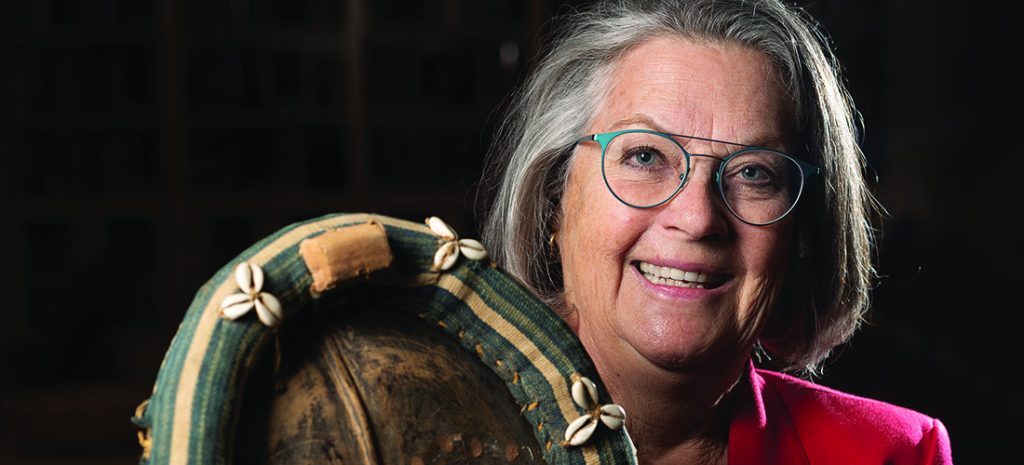
A 1974 UNCG grad’s African artifacts tell the tale of her journey
By Cynthia Adams • Photographs by Bert VanderVeen
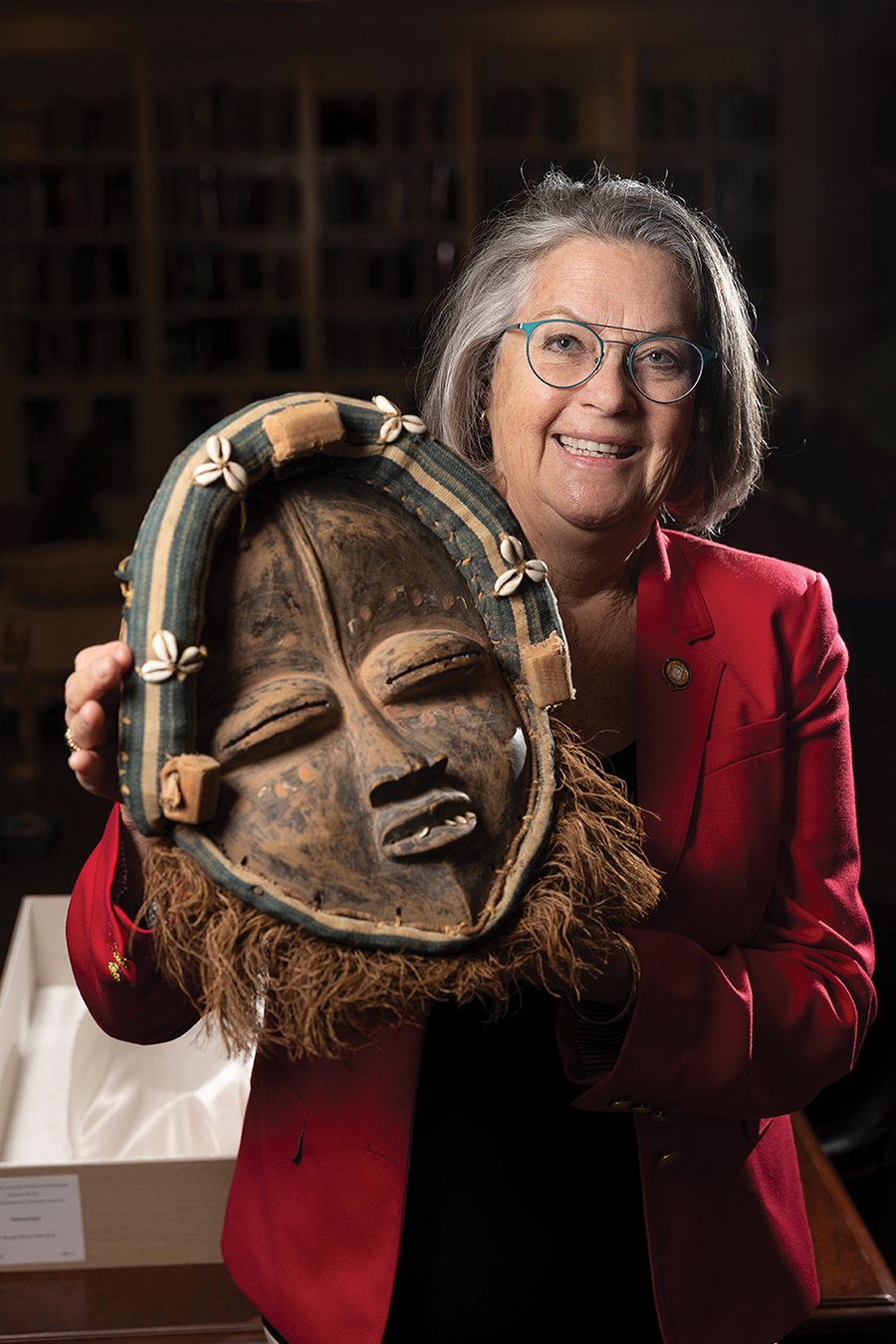
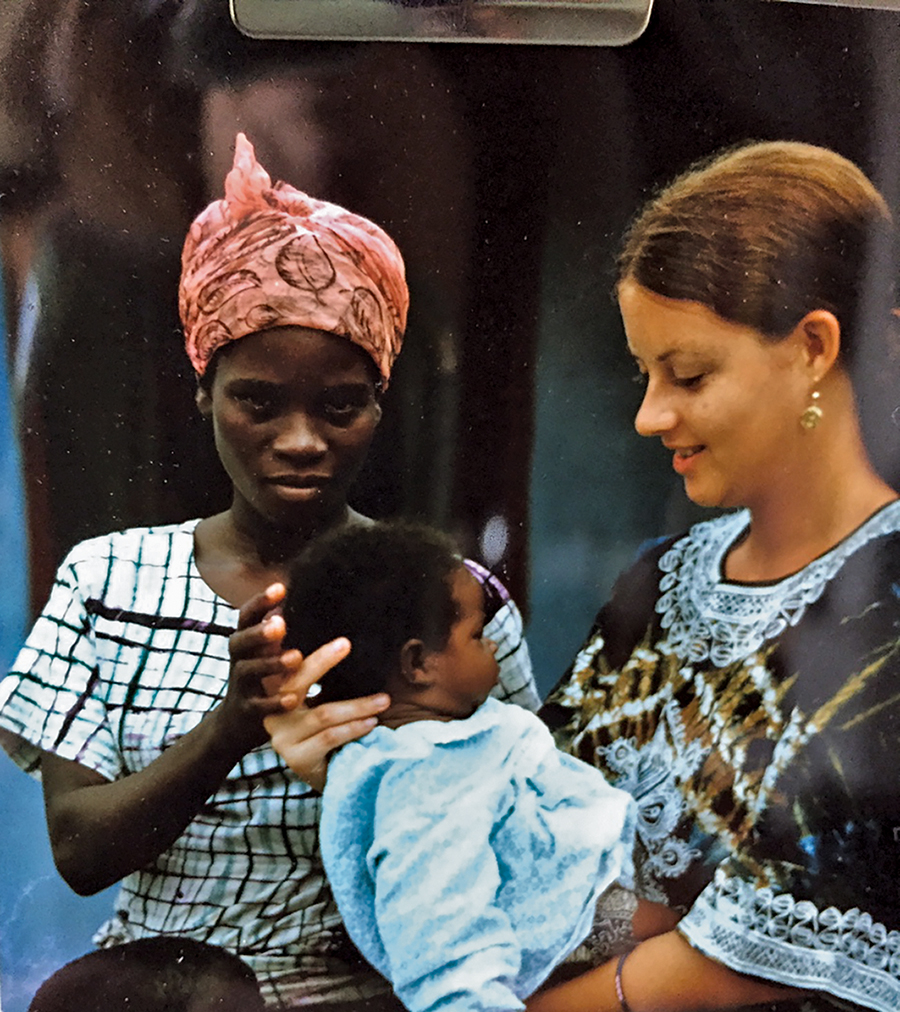
In the summer of 1974, Brenda Burgin Ross, a new graduate of UNCG, said her goodbyes to family in the North Carolina mountains before undertaking a 5,000-mile journey into sub-Saharan Africa. While many of her fellow graduates might prefer a lark abroad, she chose a life-changing experience using her new degree in Liberia, a small country no larger than Ohio.
“I was pretty sheltered,” she says. “I grew up between Marion and Old Fort, east of Asheville. I had never been out of the U.S. before.”
She mocks herself, saying she added extra vowels to words like right, light and night as riiight, liiiight and niiiight when she first arrived in Greensboro. Ross noticed other students pronounced the same words differently, in a clipped way, with a short “i” sound. “I kept my mouth shut in the beginning.”
Ross had entered UNCG as a math major, then changed to nutrition. Once armed with a degree, she signed up with the Peace Corps, requesting placement in Africa.
The gregarious, green-eyed brunette favored low-slung bell bottom jeans and clogs. She was known to her college friends as Burgin — a step toward her new identity.
In June of 1974, just shy of her 22nd birthday, Ross arrived in Monrovia, the capital city of Liberia.
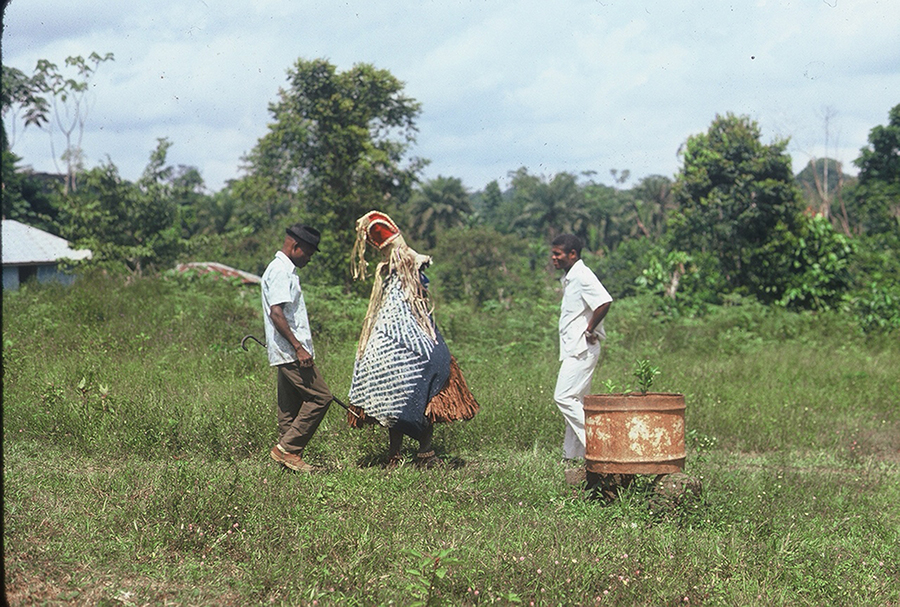
Over six weeks at a Peace Corps training site, volunteers “learned some language, but mostly learned about cultural traditions, local foods, and were given ideas and materials to use in my work as a health volunteer.” The trainees learned a smattering of the nation’s 16 different dialects, although English is the country’s official language. Ross purchased basics such as plates, cups, pots and pans, sheets, towels, and kerosene lamps. Before traveling with an official from the Ministry of Agriculture to the village of Juarzon, she stocked up on “oats, flour, sugar, tins of butter and cheese, and powdered milk”
Ross traveled light, with just a medium-sized suitcase and backpack. Other volunteers filled their cases with toilet paper; she packed contact lens supplies, books, camera equipment and minimal clothing, leaving toiletries and nonessentials behind.
They made their way south over rutted dirt roads with dust swirling during the equatorial dry season. The perpetually hot, dry season would inevitably give way to an equally sweltering rainy season.
“They have two seasons, rainy season and dry season,” Ross learned. “You welcomed dry season, but then all you wanted was a day of rain.”
Their trip took nearly three days.
“Was I eager to have an adventure?” She nods yes. There was an underlying, personal mission, too. Ross’ sights were set upon two goals: first, forging her own identity — complicated by having an identical twin. Secondly, as a child of the Kennedy era, she wanted to use her education do something meaningful, if not noble.
She was well on her way to breaking with her twinned past when she chose the Peace Corps, a decision she had made in 1970. Meanwhile, her twin, Glenda, stayed stateside to enter nursing.
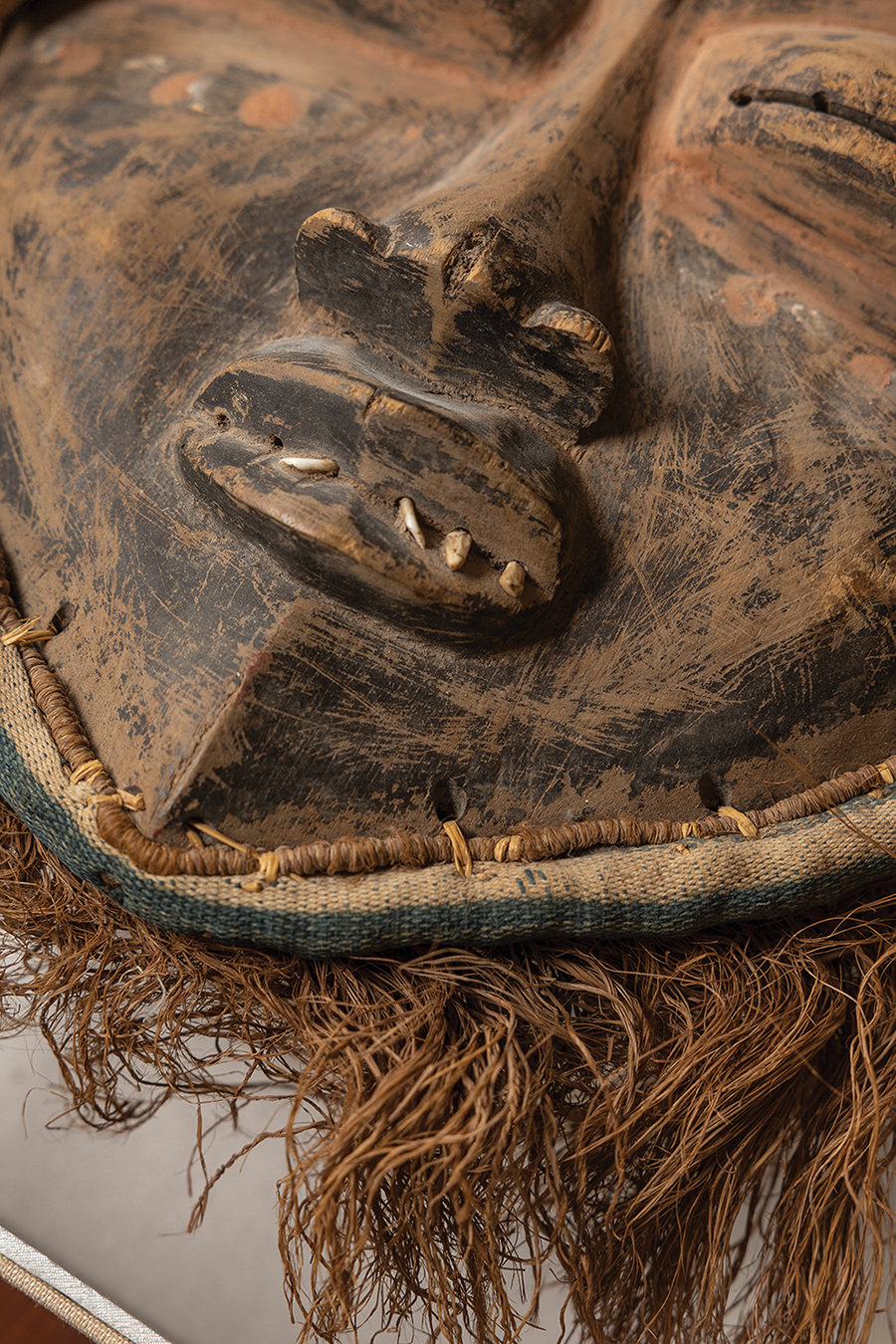
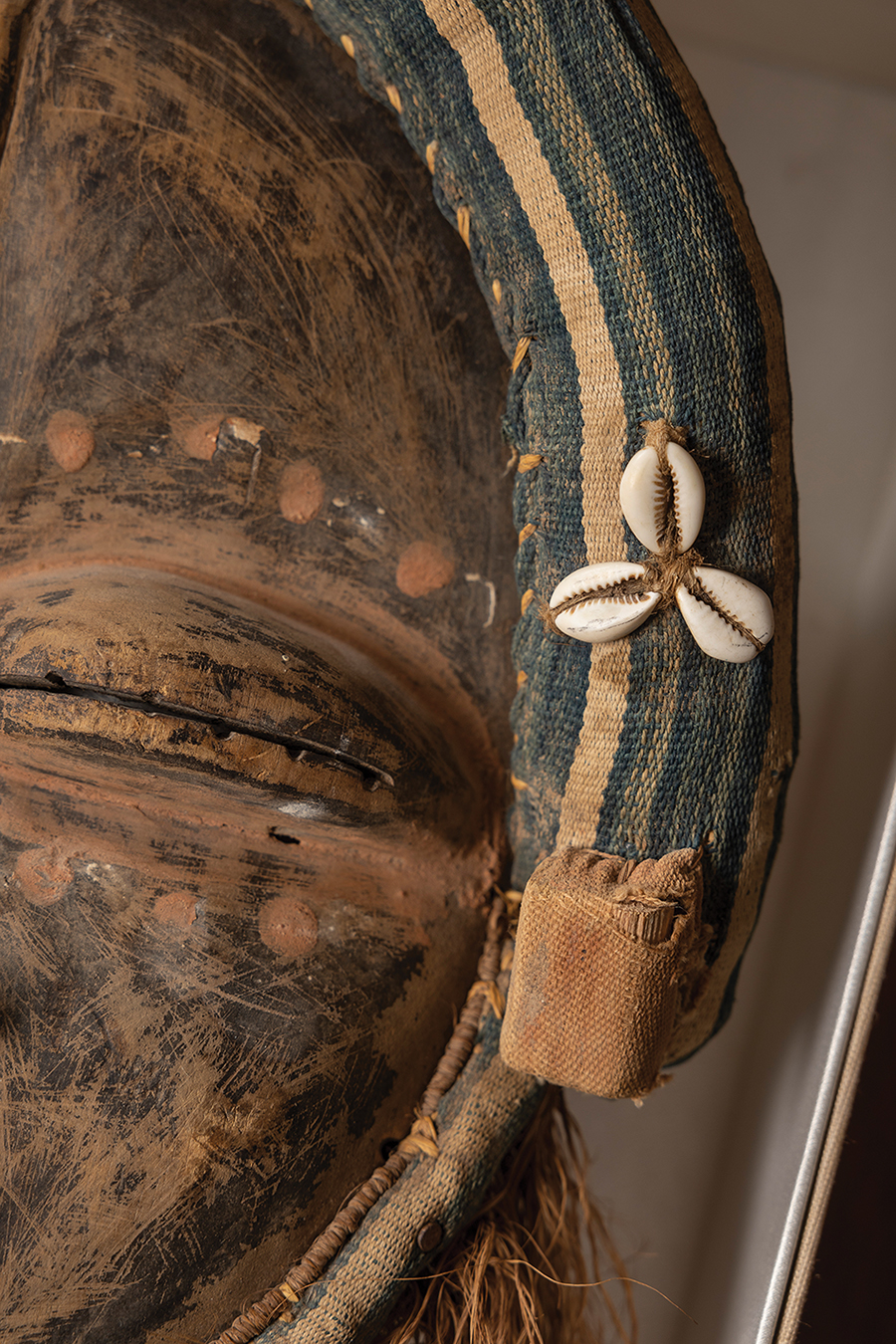
As twins, “we slept in the same bed. Our mother dressed us alike until we were 13 years old. We were called ‘Brenda/Glenda,’ or ‘the twins,’” Ross says with a grimace. “When we got into high school, we developed separate friends and interests.”
In photos, she looks like a young Ashley Judd. “I was a baby, wasn’t I?” she muses.
The Peace Corps was also still young. Founded in 1961, it was a goodwill initiative created by President John Kennedy, who visited Liberia while in office. The nation was founded in 1822 by freed American slaves as Africa’s first independent nation.
As a nutritionist, Ross would serve as an informal ambassador while helping Liberians improve their dietary standards. Ideally, this would boost Liberians’ life spans and their general quality of life.
When the ministry official left her in Juarzon and returned to Monrovia, reality set in.
“From that point, I was on my own.”
There were 35 Peace Corps volunteers placed around the country — but Ross was the only volunteer given a solo assignment. And it “had been four or five years” since a previous volunteer had been placed in Juarzon.
She moved into “a nice house with screens to keep out mosquitos and mice. I had no running water, plumbing or electricity, but [it] had a cement floor and was built of cinder blocks.”
“I wasn’t scared. Except for snakes, rats, dysentery and malaria. I was eager to see the world,” she says. Despite encountering everything she feared, she remained filled with youthful enthusiasm and seldom regretted her decision, apart from the existential loneliness. Books and magazines were hard to come by apart from trips to Monrovia.
“But I had the protection of the U.S. government,” she adds.
She has no memory of the first night in that simple hut. Then, a memorable event. Ross heard drumbeats, then the footsteps of a group of women approaching her house. They called out, insisting she come out to join them.
“Within my first few weeks there, I was called out one night to meet ‘the devil.’ Drums were playing, a bonfire was burning, and I initially thought, ‘This is going to be bad.’ Approaching the bonfire, I saw the ‘devil’ dancing. The ‘devil’ is just a spiritual figure covered in cloth, straw and with his face covered by a wooden mask.”
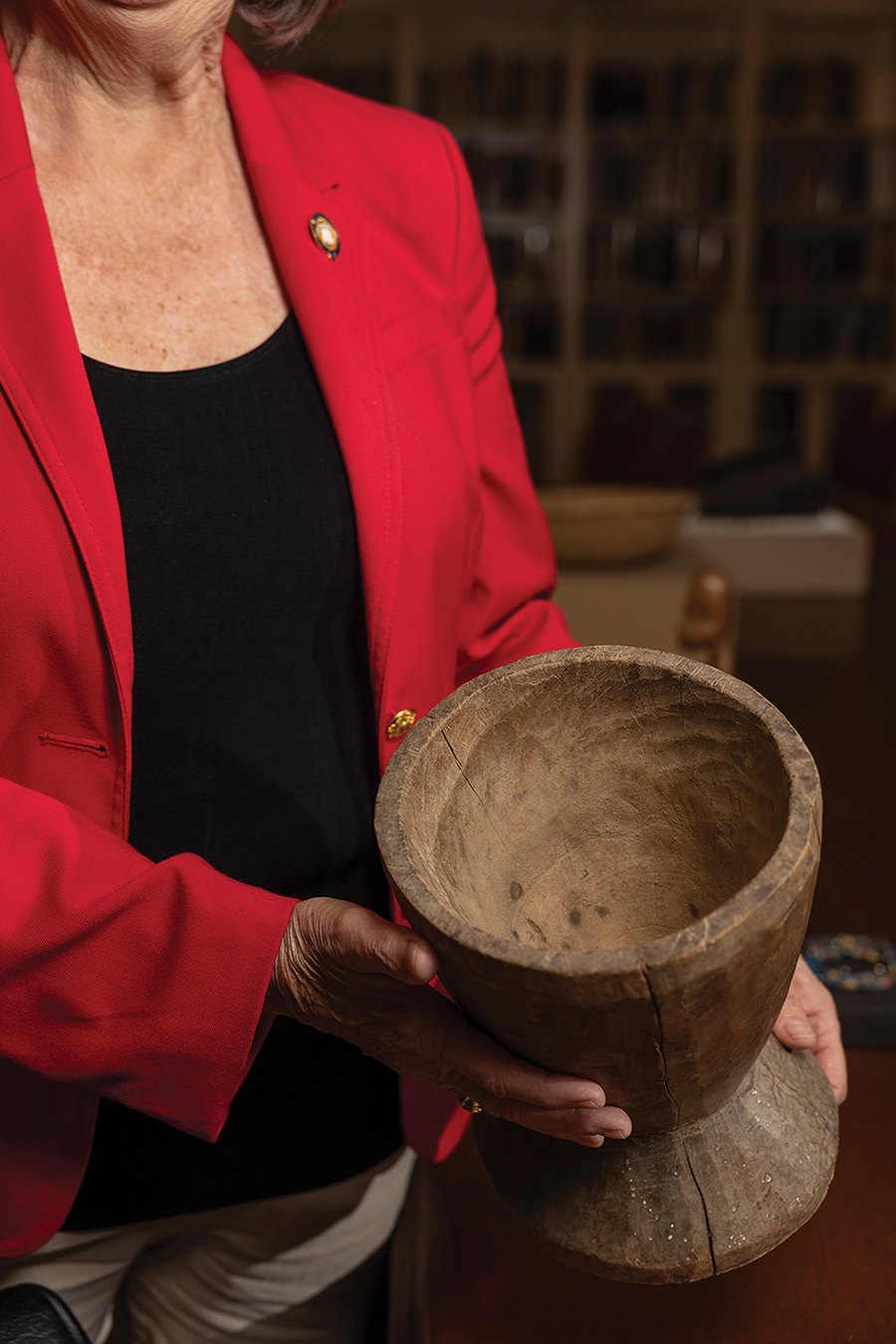
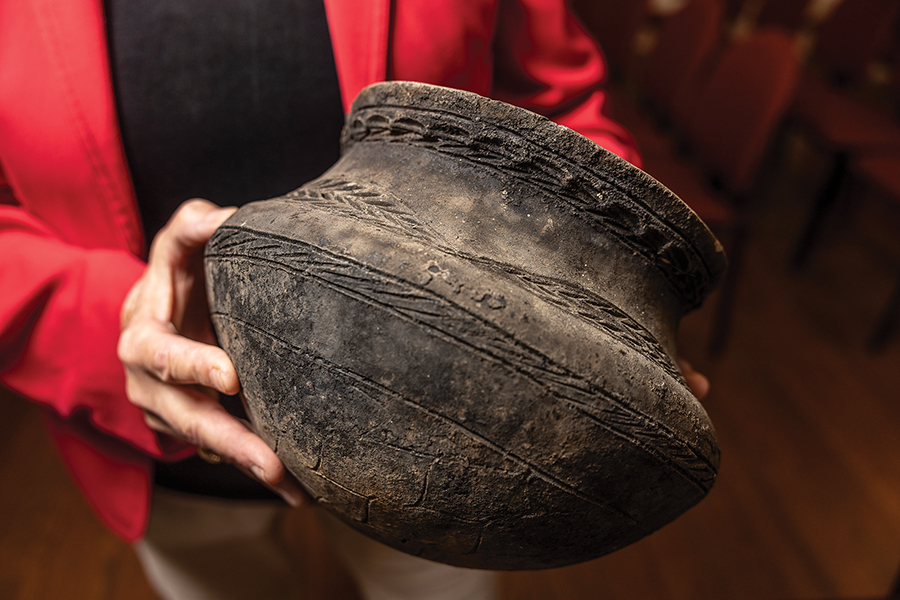
Ross’s adrenaline pumped. “He danced toward me, grabbing me around my waist, at which point I screamed and the villagers laughed.” Ross learned that the masked, dancing devils were purposeful. They came to the village to influence an election or to celebrate an important village elder upon his death. “I knew then that I was safe,” she says, “and that this was the way I was being presented to the village!”
When rainy season arrived, the incessant rain falling on the rooftop didn’t disturb her — but the rats on the roof did. “But they couldn’t get into my house,” she adds.
She swiftly discovered that nutritional advice was the smallest part of her work. Villagers were far more eager to learn skills like hand sewing, knitting and crocheting. Yet Ross’ best attended lecture was when she was invited to discuss birth control.
Because Liberia is polygamous, males faced the challenges of supporting several wives, having fathered multiple children. She noticed men also gathering closer to hear her lecture.
Regardless of their feelings about polygamy, Ross and other volunteers were cautioned against imposing their personal beliefs.
Ross preferred to interact one-on-one, talking to the women as the men worked outside the home. She never refused gifts of food as she went house to house. The village diet was largely vegetarian, although dried fish (“boni”) and canned mackerel were common. “Fish head soup was popular,” given the proximity to the coast.
Local foods included boiled cassava, palm butter, potato greens, collard greens and soups — made of okra, peanut, pumpkin, even palm oil. Limes, lemons, pineapple, papaya, pineapple, tomatoes and coconut were plentiful. Rice, a staple, was mostly imported from China.
The price of avoiding rudeness meant “I gained 30 pounds,” she says ruefully. While the locals ate from a common bowl, they would bring her a separate bowl and spoon.
Ross mastered making palm butter using a large mortar and pestle.
“They also have mortars of many different sizes, using them for crushing peanuts for peanut soup, mashing cooked palm nuts for palm butter, or for separating the chaff from the rice kernels they grew.”
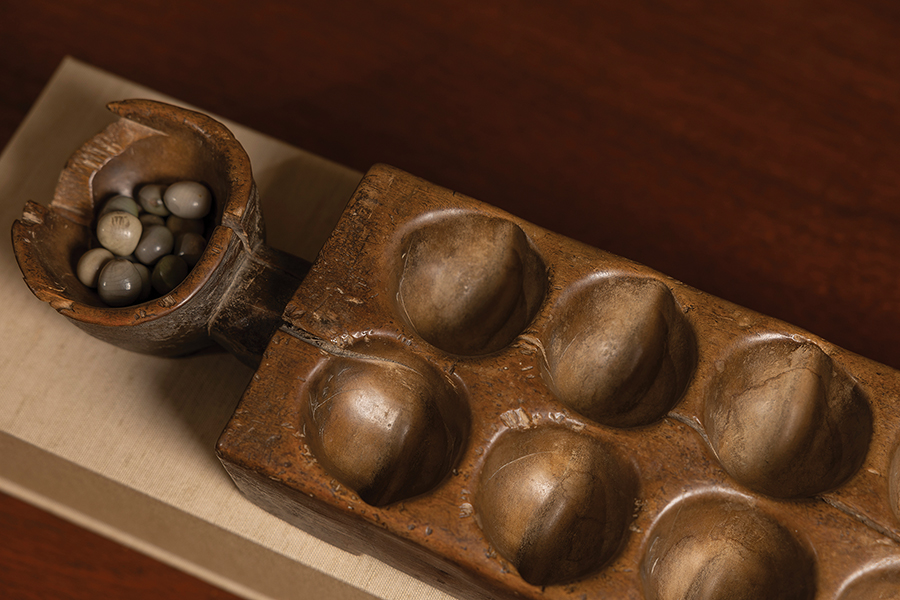
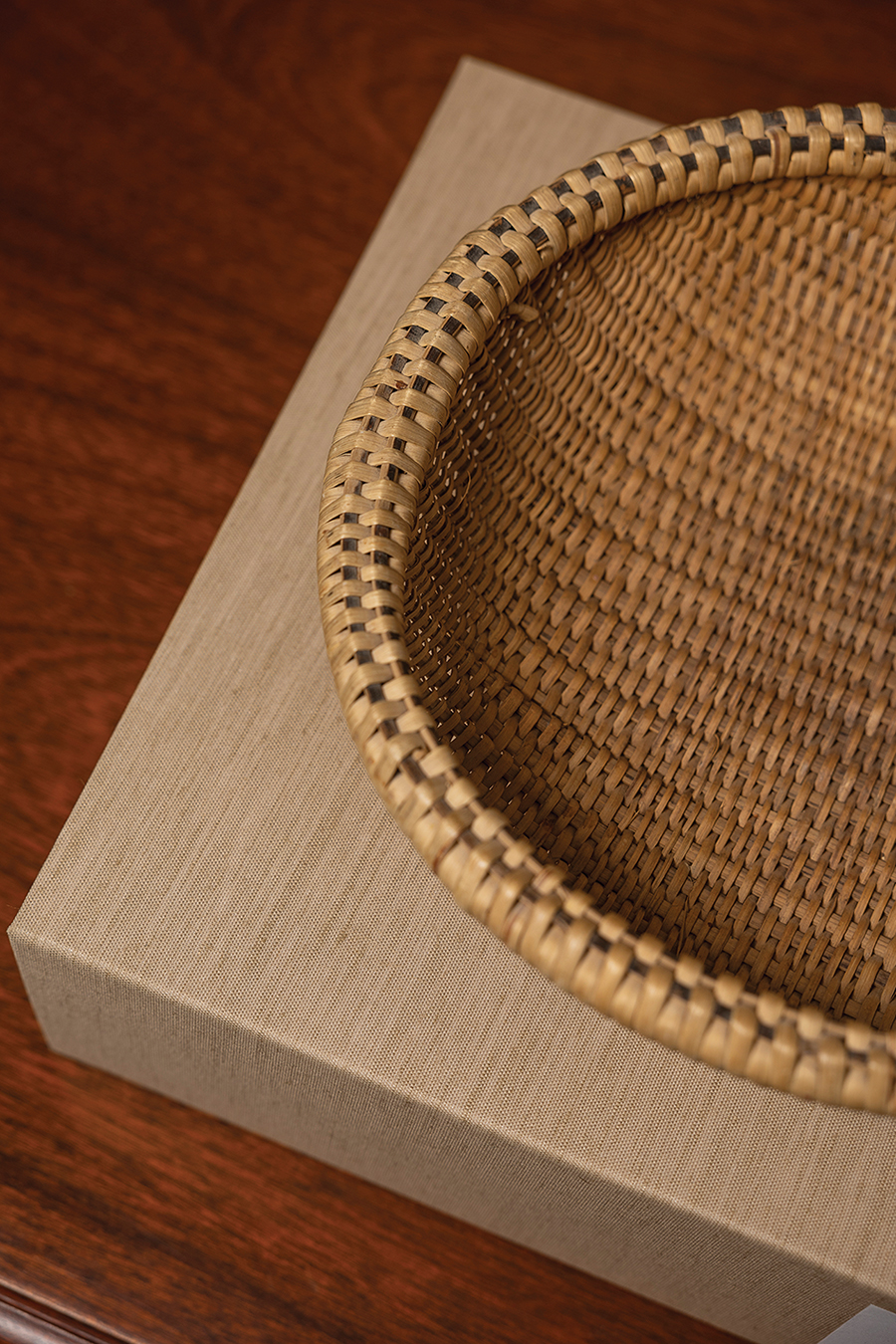
Coping with unfamiliar foods, unsafe drinking water and equatorial weather were all difficult. She sought medical help in Monrovia while suffering with dysentery and endured two bouts of malaria. Educating the villagers about boiling drinking and cooking water was an ongoing effort.
And she missed having electricity, running water and indoor toilets.
“I never got used to outhouses,” she stresses. “You had to bang on the side of the outhouse at night, because the snakes would come in seeking the cool.” She also tried to adapt to taking “bucket baths.”
Villagers called her “Missy” and later, “Jahla,” which translated to “happy girl.” No more Brenda/Glenda.
When a set of twins was born, the sole survivor was named Brenda in her honor. “I often wonder what happened to her, how she’s doing,” Ross muses.
In May of 1976, she left Liberia when her father suffered a fatal heart attack. The Peace Corps flew her home, cutting her two-year assignment a month short.
In time, Ross, her twin and their spouses opened Los Amigos, a Mexican restaurant in Winston-Salem. She worked in food and nutrition services at Duke University Medical Center and later at numerous corporations. Ultimately, she consulted with hospices and retirement homes while earning a graduate degree in gerontology and teaching. Ross became a UNCG instructor in 2010, eventually becoming an associate professor in nutrition.
Retiring last year, she made the decision to donate seven Liberian artifacts to UNCG’s Special Collections, pieces that she had kept in her campus office. She called these “precious possessions.”
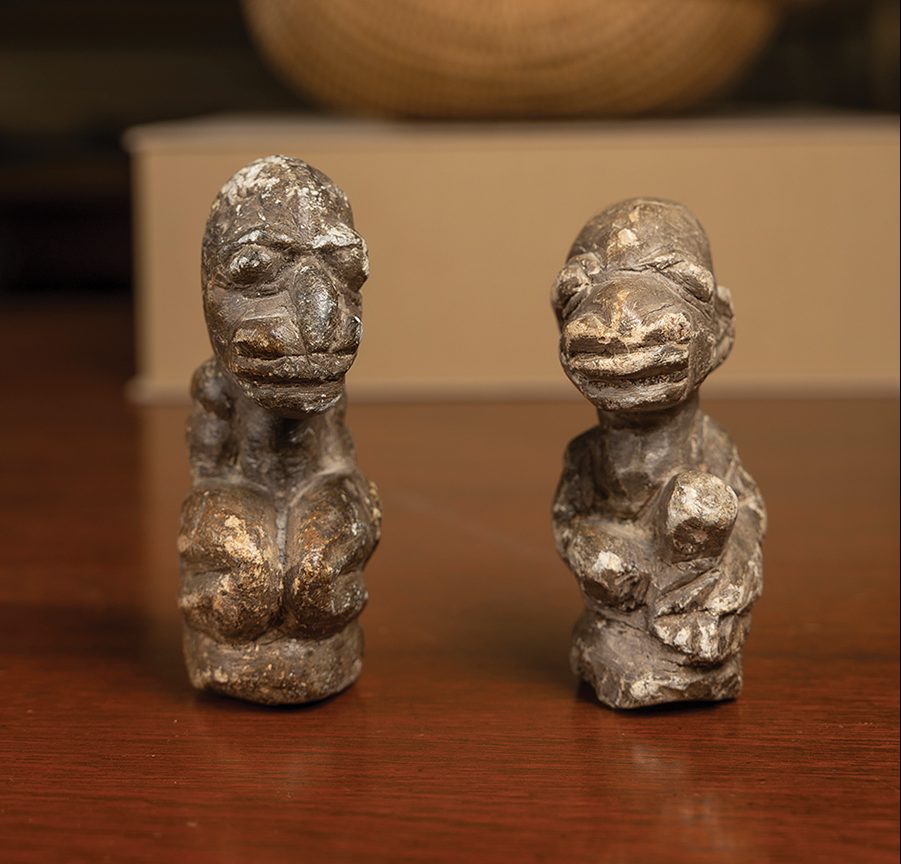
Included were a ceremonial mask, a clay cooking pot, sifting basket, wooden mortar, a primitive “mancala” board game and two bracelets.
“The wooden mortar was used by my friend and neighbor, Esther, to crush dried pepper for cooking. Liberians put hot pepper in every dish they make,” Ross explained when presenting the collection late last year to a group of anthropology faculty, friends and students.
“I was given the mortar the day prior to leaving, along with a live chicken to ‘taken to my ma.’ We cooked the chicken and had a group dinner.”
Ross gave Esther her own mortar, one she had used throughout her stay, in thanks.
“The mancala game was given to me by another Peace Corps volunteer,” she says.
The mask, believed to be Liberian, is the centerpiece of the collection. It is identical to the one the dancing devil wore in Juarzon, a gift from Ed Lipschitz when researching West African masks.
“Ed ate dinner with me every night during the months he stayed in the village,” says Ross. “The mask was a ‘thank you’ for those meals.”
Lipschitz later became a curator at the Smithsonian’s National Museum of African Art.
In passing along the personal artifacts, Ross honors the place that bookended the beginning and end of her career. “None of my career would have happened without my education at UNCG,” she says, adding she is deeply moved by her alma mater’s response to the gifts.
“My story has come full circle.” OH
